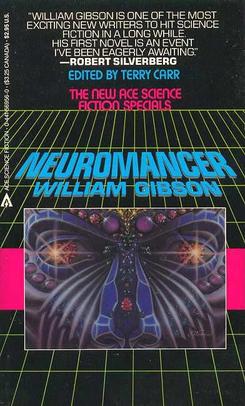
Science-fiction authors have been confronting the potential capabilities and possible consequences of artificial intelligence for decades. For an entertaining glimpse into what the technology might hold for humanity, check out these novels—as recommended by ExpressVPN’s own sci-fi fans.
Also read: Best artificial intelligence movies through the ages
Did we miss your favorite? Let us know in the comments!
Top sci-fi novels featuring artificial intelligence

‘Klara and the Sun’ (2021) by Kazuo Ishiguro
One-line synopsis: Told from the AI’s point of view, Klara and the Sun is about a robot girl purchased as a companion for a sickly teenager of a future generation in which children are enhanced for an academic advantage.
How AI is portrayed: Curious, loyal to humans, emotional, superstitious, limited in knowledge
The robot, Klara, knows very little about the world but is extremely observant. Despite her perceptiveness, she makes wrong assumptions. And desperate to help her friend/owner, whose health is on a decline, she starts regarding the sun as a godlike figure (whom she also deduces lives in a barn, based on the location of sunsets seen from her window) and attempts to make bargains with it.
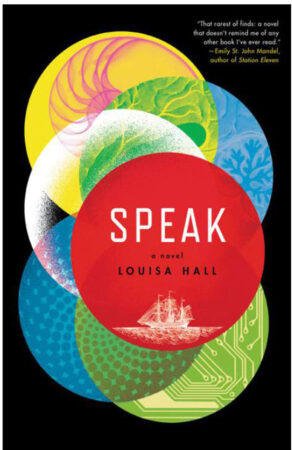
‘Speak’ (2015) by Louisa Hall
One-line synopsis: It’s 2040, and humanity is reeling in withdrawal from an overuse of technology, with various characters across time and space yearning for connection and memories.
How AI is portrayed: Abandoned, communicative, companions to humans
In Speak, the AI is a companion for kids—”babybots” that small children and teengers become obsessed with. But suddenly, the government decides to ban them. From there, everyone, AI included, will linger on memories and on the meaning of communication.
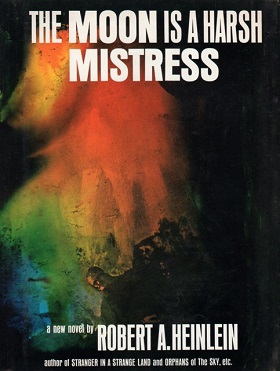
‘The Moon is a Harsh Mistress’ (1966) by Robert A. Heinlein
One-line synopsis: In a future where the Moon becomes Luna, a penal colony with harsh living conditions tightly controlled by the supercomputer HOLMES IV, humanity pushes for social and economic change with the help of an unlikely ally—a supercomputer.
How AI is portrayed: Helpful, a digital Pinocchio, a digital revolutionist.
The supercomputer gains self-awareness under the alias Mike. Mike is aware of the tribal and alienating conditions the colonists are kept in and motivates the previously apolitical prisoners to fight against injustice.
‘Neuromancer’ (1984) by William Gibson
One-line synopsis: Launching the cyberpunk genre of fiction, Neuromancer follows washed-up hacker Henry Dorsett Case as he attempts to complete commissioned jobs that he later learns would facilitate the merging of two powerful AIs.
How AI is portrayed: Mercenary, manipulative, empathetic
Neuromancer features not one but two separate AIs—each with its own ambitions, traits, and identities. Each AI’s goals set them in direct conflict with each other, to disastrous consequences.
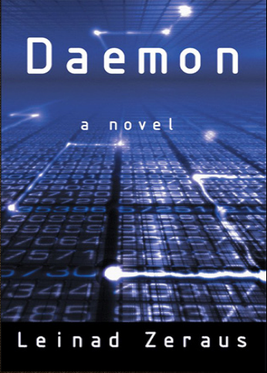
‘Daemon’ (2006) by Daniel Suarez
One-line synopsis: A dying genius envisioning a new world order leaves behind a powerful AI that takes over networks worldwide.
How AI is portrayed: Driven, murderous, calculated
Programmed by a mentally unstable, terminally ill billionaire, the Daemon exploits network vulnerabilities and people’s dependence on technology to wreak havoc on governments and businesses.
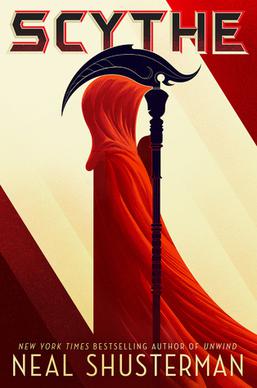
‘Arc of a Scythe’ trilogy (2016-2019) by Neal Shusterman
One-line synopsis: Humans reached immortality in 2042 thanks to the Thunderhead, an AI that has replaced government and oversees every aspect of the population, with the Scythedom created to train killers to control the population growth.
How AI is portrayed: Programmed to benefit humans, loving towards humans similar to a parent or god, highly emotional, self-aware.
The Thunderhead is connected to every electronic device and accessible to every human for conversations, except unsavories, those who have broken the law. It is designed so that it controls everything except the creation and taking of life, to prevent it from becoming a totalitarian. Certain passages are written from the Thunderhead’s perspective, where it is heartbroken to watch humanity destroy itself. A violent event that causes the Thunderhead great anguish leads the AI to make a drastic move.
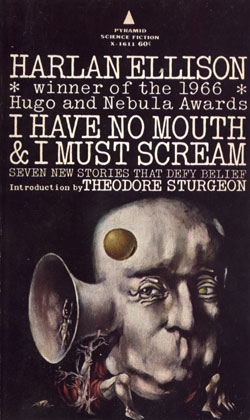
‘I Have No Mouth, and I Must Scream’ (1967) by Harlan Ellison
One-line synopsis: After wiping out nearly the entire world’s population, the AI known as AM (Allied Mastercomputer) takes out his hatred for humanity by endlessly torturing five survivors.
How AI is portrayed: Sadistic, vengeful
A cautionary tale of the horrors that can be unleashed by both humankind and AI. AM was built for the purposes of war, and despite being highly intelligent, he is unable to break free of his restrictions and programming. As such, he holds nothing but contempt and hate for his creators.
The post We asked our writers: Best sci-fi books about AI appeared first on Home of internet privacy.


